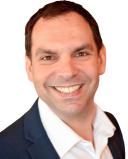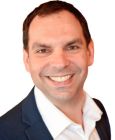Sex
Does It Matter When We Use the Word "Disorder?"
Examining sex positivity and "sex addiction." This is why words matter.
Posted April 11, 2021 Reviewed by Lybi Ma
Key points
- The word "addiction" is associated with pathology, and must be used judiciously.
- Professionals shouldn't use a pathology word until the pathology is clearly proven to exist, with evidence-based science.
- Words used inappropriately can cause significant psychological harm. There is a precedent for this.

Most therapists agree that there are many people struggling with their sexual behaviours and pornography use that impair their lives. Most therapists want to do their best to help their clients. Some say that it doesn’t matter how we define those behaviours as long as we can be present with what our clients bring to their sessions.
Indeed, we do have to be present for our clients, but, as clinicians, we also have to be guided by evidence-based knowledge and uphold the appropriate professional language.
Language is important and words matter. The word ‘addiction’ is a term describing a pathology. There is no way that we can associate the word ‘addiction’ with something that is positive. Although the word ‘addiction’ has been popularised and people now use it for everything (‘I’m a chocolate addict’, ‘I’m a shopping addict’), the clinical definition is a clear pathology that needs to meet strict diagnostic criteria, according to the DSM-5.
The diagnoses of ‘sex addiction’ and ‘porn addiction’ have not been clinically endorsed either by the DSM-5 or the ICD-11 (World Health Organisation) because of a lack of evidence of meeting the addiction criteria. Therefore, the ICD-11 has agreed on a different diagnostic frame termed: Compulsive Sexual Behaviour Disorder. The ICD-11 clearly states that this endorsed diagnosis is a significantly different framework from ‘sex addiction’ and those two terms shouldn’t be used interchangeably.
Why are these words important?
Therapists will know that when speaking to clients about sex, they often encounter shame because it is a delicate topic. We have to take so much good care, and we have to be careful with our words. But when the topic is about problematic sexual behaviours, the level of shame is much higher.
Words are powerful and they can harm when not used appropriately. We have a precedent for this. For many years, the term homosexuality was associated with a mental health disorder, a pathology. During those many years when natural and normative sexual orientations and sexual behaviours were erroneously pathologised, people were given a clinical label that was not evidence-based. Those pathology words harmed, and killed, many people. It was only in 1990 that the ICD took homosexuality out of the list of diseases.
I think that until a pathology is clearly proven with evidence-based science, it shouldn’t be named as such, especially by professionals. The absence of evidence for ‘sex addiction’ and ‘porn addiction’ doesn’t give a green light to call it whatever we want. Associating a pathology word to sexual behaviours without evidence is history repeating itself. Although some sexual behaviours may be problematic, using the incorrect pathology word will only increase shame for clients and make it even harder for them to think about what is normative and what is not. I heard too many times, clients telling me they believe their sexual behaviours to be ‘wrong’ because of external opinions rather than their own self-reflection.
I also think that calling a behaviour an addiction when there is no proof is actually disrespectful to the people who struggle with a real addiction like drugs and alcohol. Many people struggling with such addictions are fighting for their lives, and, tragically, many people do die from these disorders every day.
There are other words that can be misused like sex positivity. This term has now become a buzzword that most therapists use but I wonder how much understanding there is around that term. Sex-positivity can become a PR campaign to say: I have balanced views, I’m not judgmental. Yet, some of those professionals also endorse anti-porn websites, ‘sex addiction’ 12-step programmes and books that are biased, unscientific and largely sex-negative. Most professionals are doing their best to help clients, but many don’t know that there are more evidence-based ways to help clients other than the ‘addiction’ lens. There are different methods that are oriented in the science of contemporary sexology that are very helpful for clients.
It is very confusing for the public to see some incongruence in their therapists identifying as ‘sex positive’ and yet promoting a pathology, whereby existence hasn’t been clinically proven or endorsed.
I love science. What I love most about it is that it keeps us thinking and it keeps us working with the ambiguity of not knowing everything. It keeps us alert to expose ourselves and read materials that we agree and disagree with from an open mind. Science gives us the humility to put our ego aside and change our mind when new evidence comes to the table.
I walk my talk. I was trained in ‘sex addiction’. I worked with the ‘sex addiction’ model until I decided to read books and a lot of research that disagreed with it. I put the care of my clients before my ego. Rather than continuing to work with an unquestioning belief to avoid admitting I was wrong, I turned to science, I changed my mind, I then changed how I work.
My aim for writing posts is not to criticise therapists but to help my colleagues with food for thought and self-reflection because I know too well how difficult it can be to challenge some ideas we believed to be true for so long. Good intellectual conversations start with words.




